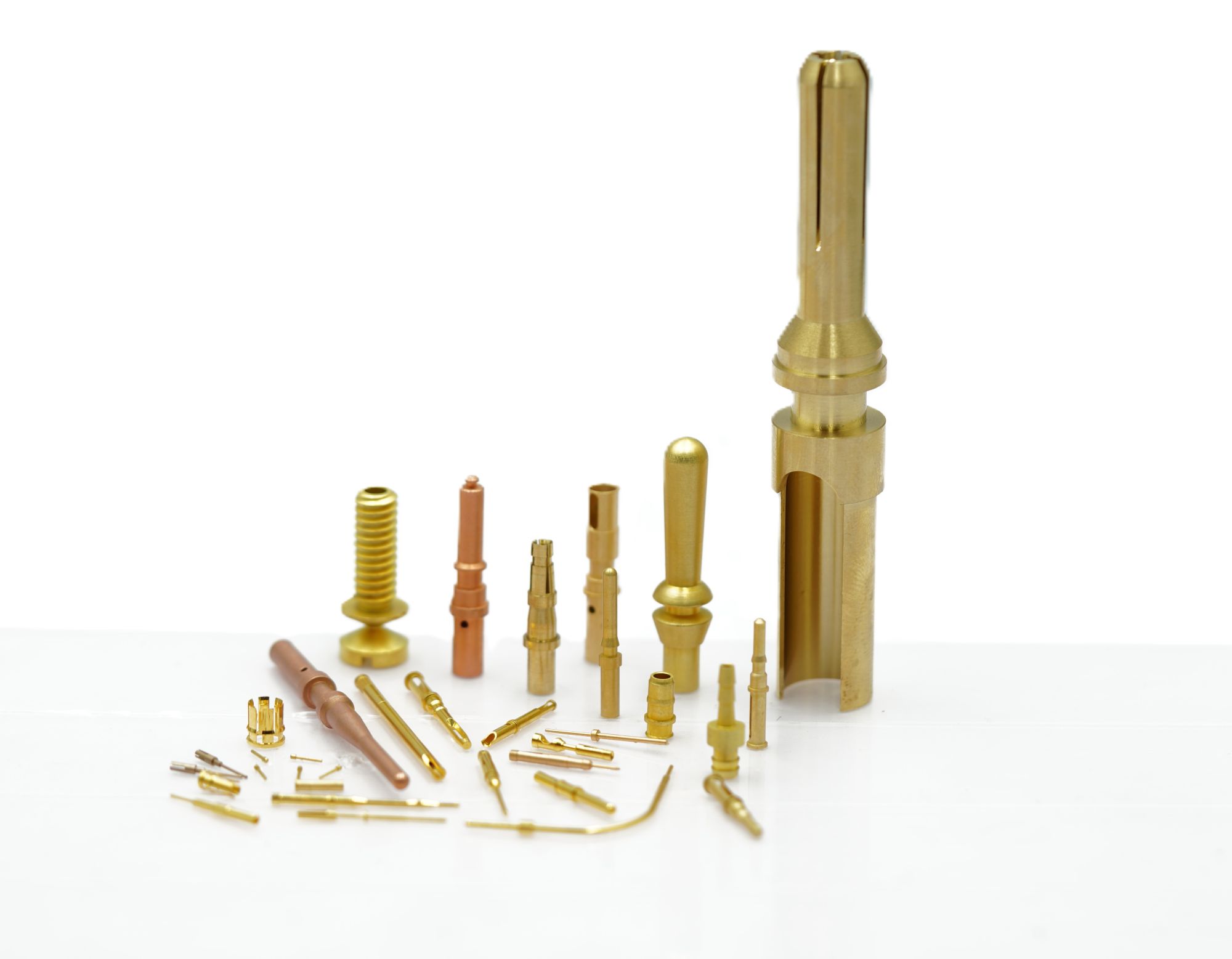By Franky Nguyen, AVF Decolletage
Introduction
Brass Connector Pins play a critical role in modern electronics. They provide the balance of conductivity, durability, and machinability needed for high-performance connections. Without them, systems in aerospace, automotive, medical, and telecommunications would not function reliably.
At AVF Decolletage, we specialize in manufacturing precision brass connector pins using Swiss CNC and CAM machining. Therefore, our parts meet strict global standards and deliver superior performance. As a result, industries worldwide rely on our brass pins to ensure efficiency and stability in their devices.
Why Brass Connector Pins?
Brass is the most common material for connector pins. Here’s why:
-
High Conductivity – supports efficient electrical performance.
-
Excellent Machinability – makes it easier to produce tight tolerances.
-
Corrosion Resistance – prevents oxidation that weakens connections.
-
Strength and Durability – resists wear from repeated mating cycles.
-
Cost Efficiency – more affordable than precious metals while still reliable.
Types of Brass Alloys for Connector Pins
At AVF Decolletage, we select the alloy based on performance requirements:
-
C36000 Free-Cutting Brass – high machinability, widely used.
-
C17300 Beryllium Copper (BeCu) – superior strength and spring properties.
-
C54400 Phosphor Bronze – enhanced wear resistance.
-
C19160 (C97) and C18700 (C99) – high-performance alloys for connectors.
-
C38500 Architectural Brass – used in specific applications requiring extra corrosion resistance.
Each alloy provides a balance of conductivity, mechanical strength, and cost.
How Brass Connector Pins Improve Electrical Performance
Brass Connector Pins improve performance in several ways:
1. Lower Contact Resistance
Smooth machining and plating reduce resistance. Consequently, signals remain clear.
2. Stable Mechanical Properties
Brass resists deformation, so connections remain secure over time.
3. Plating Compatibility
Brass accepts plating such as gold, nickel, or tin. Therefore, it can be adapted for specific environments.
4. Thermal Stability
Brass maintains conductivity across a wide temperature range. This is essential in automotive and aerospace.
5. Cost-Effective Reliability
Compared to copper or exotic metals, brass offers durability at a lower price point.

High-precision brass connector pins manufactured with Swiss CNC machining by AVF Decolletage.
Industries That Rely on Brass Connector Pins
-
Aerospace – avionics and navigation connectors.
-
Automotive – battery modules, ECUs, sensors, EV systems.
-
Medical Devices – diagnostic equipment and surgical instruments.
-
Telecommunications – 5G networks, fiber optics, and RF connectors.
-
Consumer Electronics – wearables, laptops, and mobile devices.
Design Considerations
When developing brass connector pins, engineers must evaluate:
-
Geometry – affects contact pressure and insertion force.
-
Plating – gold for conductivity, nickel for strength, tin for affordability.
-
Tolerance – tight tolerances reduce signal loss.
-
Surface Finish – burr-free surfaces improve performance.
The Manufacturing Process
At AVF Decolletage, the process includes:
-
Swiss CNC & CAM machining – micron-level tolerances.
-
Secondary operations – heat treating, bending, annealing.
-
Plating – gold, nickel, or tin for enhanced reliability.
-
Inspection – ISO 9001:2015 certified QC, plating thickness testing, resistance checks.
Learn about our quality system.
Common Challenges with Brass Connector Pins
-
Oxidation – solved with gold or nickel plating.
-
Wear & Tear – managed with burr-free finishes.
-
Signal Degradation – reduced through precision machining.
-
High Vibration Stress – addressed by using alloys like BeCu.
Case Study: Automotive Brass Connector Pins
A global automotive OEM required pins for battery management in EVs. The challenge: conductivity and durability in high-vibration conditions.
-
Solution: AVF Decolletage used C17300 BeCu alloy with nickel plating.
-
Result: Reliable conductivity and long service life under extreme use.
Future Trends for Brass Connector Pins
-
Miniaturization – supporting IoT and wearables.
-
High-current applications – needed for EV charging and renewable energy.
-
High-frequency use – telecom and 5G require low-resistance pins.
-
Sustainable materials – eco-friendly plating and alloy selection.
AVF Decolletage continues to invest in R&D to support these trends.
Conclusion
Brass Connector Pins combine conductivity, machinability, and cost-effectiveness. They are essential in aerospace, automotive, medical, telecom, and consumer electronics. At AVF Decolletage, we use premium brass alloys, Swiss machining, and ISO-certified QC to deliver connector pins that enhance electrical performance.
Frequently Asked Questions (FAQ)
Q1: Why is brass used for connector pins?
Because it offers conductivity, durability, and affordability.
Q2: Which plating is best for brass pins?
Gold for maximum conductivity, nickel for strength, tin for cost savings.
Q3: How does AVF Decolletage ensure quality?
Through Swiss machining, plating control, and ISO 9001:2015 certification.
Q4: Can brass connector pins handle high current?
Yes, with proper alloy choice and plating, they can support EVs and energy systems.
Q5: Does AVF Decolletage make custom brass connector pins?
Yes, we produce both standard and custom designs.


